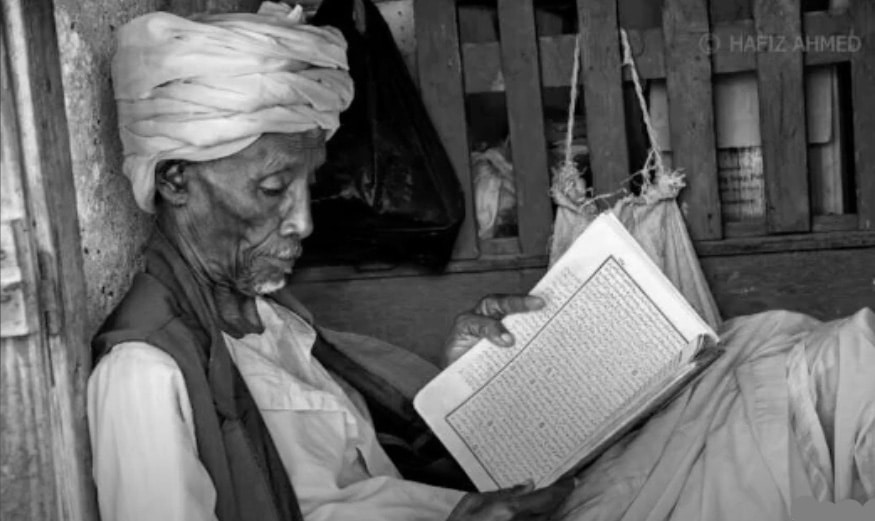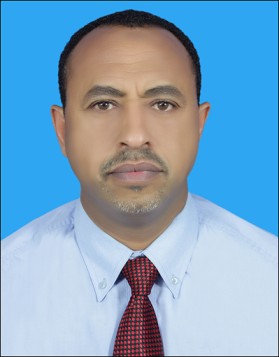Education in Arka Saber’s Songs

Education is considered as one of the most important topics that crystallises in Arka Saber’s poetry to contribute to his community. Like many other generations of his age, the poet was not lucky enough to study a formal academic education in his village because of the limited educational opportunities available by then. However, the Quranic school in which he learned the basics of education and religion equipped the poet with the necessary understanding of the role that he could play in presenting several messages through his poems.
Among these topics, the theme of education has been leading other issues because Arka aimed at consistently communicating with his audiences from different social perspectives. Furthermore, he realised the importance of education in developing and preserving local societies. In addition, he referred to the first Quranic verses that strongly emphasise on the importance of education in securing societies.
Arka specified an entire poem under the title, “Al-Ta-leem” /u-t?ǝ-li:m/, which means “Education” in English. Due to the importance of education, the poet mentioned it on several different occasions throughout his countless poems. His amazing conversational style that he always implements in communicating with his audience paves ways for his wake-up messages to touch the hearts of his fans. Arka’s style in presenting the effects of his poetic work leaves space for listeners to think, digest and innovate explanations for his claims, each according to his understanding. In “Education”, he presented some of the difficulties societies face with low number of educated people and its effects in communities.
“Al-Ta-leem“, /u-t?ǝ-li:m/,
| Transcription | English translation | Arabic translation | Lines in Bejawiet |
| /wɔ:-r i-behl-ji hʌn-kǝi tu-sǝf-fǝ lᴂm-seineik//teij-jǝ bi:-ʃᴂkwi-jhɔ:b ᴂb-bᴂbǝ hi-mᴂ-qei-neik//sǝ-lǝ-qᴂt hᴂr-wei kǝk ǝn-fǝ-mᴂ ji:-ni/ | If a child is learned nonsense before (he)speaks,(and) he refuses goats’ herding until they become lost. How can he benefit others? | اذا الطفل يعلموه ما لايفيد قبل الكلامولما يرفض الرعى و يضل الطريق, كيف يستطيع أن ينفع غيره؟ | وأور ابهلي هنكاي توسفا لامسينتيي بيشاكيهوك أب همقاقينيك صعلقات هروي كك انعفما يعيني |
| /tehl-qwǝ tɔk-nǝit nu:n tɔ:-rǝu kǝ- rid-di-jǝ//ki:-kǝ-nǝi-t fǝi-dᴂt ɔ:-dehǝi kǝ-nehb-bɔ:-jǝ//nif-ri tǝk ʃib-bi:t hi:-dǝi- ʃǝ-qǝ-mi:ni/ | If he only responds to his desires,)and) does not warn people, then, all his practices won’t fit others. | لو لم يتجاوب الا مع من يخصه ,و لاينبه الاخرين لانه لا يعلموبالتالي, يتبع ما لا يصلح من الناس | تلهقا تؤكنايت نون تورارو كردياكيكنيت فايدات اودهي كنهبويانفري تك شبيت هيداي شقاميني |
| /?ǝb-ti-lǝ sʌn-hɔ:k ǝl-jǝ i-mɔ:s-mi:-ju:k//wint qǝ-bi:-lᴂti dɔ:r in-bᴂ-bᴂ ʃew-wehi:-ni//tis-mǝ hǝl-ki:-ni tiqi-rǝ-jǝ bi:-kǝ-neik/ | Whoever heirs a name, of parents or a tribe, he can fail or discredit itbecause he did not get education. | من حمل اسمك, دائما يفشلويشوه سمعة والده و قبيلتة,لانه لم يتعلم | أبطلا سنهوك أليا اموسيوكونت قبيلة دور انبابا شهوينيتسمعا هلكيني تقرايا بيكانيك |
| /di:-mehǝ hǝr-qwᴂbu jɔ:-ti: rǝ-bɔ:-bᴂ-tu//ǝk-rǝ mᴂl br-jeij nik-ʤᴂ-b ǝk-kǝi sǝn-hɔ:-k/ /ʤǝ-mǝ-li:-ju:k bu:n ni-tᴂk ind-hɔ:k/ | Always naked, and hungry,despite his fortune,if he holds you, he may invite you for a cup of coffee. | دايما جائع و مظهره عاري , بالرغم من ثروته يبدو عليه البؤس,لو جاملك يدعوك لفنجان قهوة. | ديمها هراقابو + يويتي ربوبابوأكرا مال برييي نكجاب اكي سنهوكجاملييتوك بونون نتاك اندهوك |
| /ǝl-lǝ-mʌm-tin-eik ǝl-lǝ-mʌm-tin-eik ǝl-lǝ-mʌm-tin-eik u:s-lᴂ-m hǝ-mɔi-sin-jeik ɔ:-fehm- eiʃ-ti:m- hɔk u-qǝ-lǝm qǝ-nǝi-ji:n-hɔk//bǝ-rǝj hɔk kǝ-sǝ mǝj-bu:r hǝr-ɔ:k dǝ-jei-n/ | You will be respected if you are educated because it enriches your understanding,even if you did not satisfy, you will be offered leadership | يحترمك الاخرين اذا تعلمت,الفهم يزيدك و التعليم يغنيك,وان لم يرضون عنك, سوف يقدمونك | علممتييك اوسلام همويسينهوكاوفهم ايشتيمهوك اوقلم قنايينهوكباري هوك كسا مجبور هرؤك دايين |
The harmonically chosen words, which are associated with the theme of this poem, have some socially unacceptable phrases from which the poet aimed at provoking the listeners with profaning words that they refuse to hear in natural communication. Considering that, he realised these words could be the only approach to attract their attention and accept his messages.
Arka presented the theme of education in an outstanding, conversational style, wondering, “How a child who does not yet learn to speak well could be engaged in life tasks without involving him in his parents’ job, which supposed to be acquired first as a villager and then goes further to complicated activities?”. Arka answered the question by saying, “This child will never be expected to contribute for his parents, family, and even for the community”.
Here, Arka would like to draw the parents’ attention to an urgent message including the children’s concern at the early stages of their lives. He believes that the first educational process begins by giving the children a life role and then follows by asking to fulfill their responsibilities because Arka’s message is to enhance raising children for environmental jobs as an essential initial educational step.
In the second line of the poem, Arka blames children for responding and accepting only what interests them without any consideration to other matters that they are not personally linked to their concerns for two basic reasons. The first is that they are not aware of what benefits or harms affect them because they are uneducated, and the other one is that they cannot warn others from the upcoming unseen dangers. So they follow whoever hurts them because they don’t know what the secret enemy is. Here the poet’s message was to those who did not follow the educational path, and how painful their ending was.
Arka draws dark pictures and painful scenes that warn parents of occurrence in case their children are not educated. One of these scenarios is dishonesty, which resulted from deviating from schools, as well as the distortion of the parents’ names and tribe’s reputation. Arka added the hunger and agitation, which are directly associated with the overall look of uneducated person, whose enormous wealth cannot be seen despite of its availability. He is also unable to honour a guest or have mercy on a poor person because he does not like to see anyone suffering from basic needs of life, and the least you can expect from him is to invite you for a cup of coffee if not a full meal.
The dialogue of Arka with parents has summarised the expected enhancement of pushing children to schooling system and overcoming the estimated problems of those who were not lucky to study any formal classes. At the end of the poem, Arka has repeated the term “education” three times emphasising on its importance and warning those who did not study will see its negative impact. He recognised those who learned gained respect and appreciation from others. He believes that education increases understanding significantly and equipping children with outstanding life opportunities. He also stated that whoever learned would be ranked higher in positions despite of the expected competitions.
Education is considered as one of the life’s topics that Arka pushed forward as it heals societies and promotes individuals. Since it is the only way of delaying societies, the poet discussed the issue in many of his poems. As mentioned in a previous article, the role of university students was essential in changing their societies and giving hope to those whose paths of life were about to close. The educated people from the countryside led those societies and kept making them aware of it in order to reach the highest levels of education.
The poem, ‘Oaki-tab’, which was introduced in an earlier article that means, –‘Al-Kitab’– and referring to the Quran, contains Arka’s opinion in the importance of education with his distinguished style of writing, which is approaching by raising a question and leaving it without an answer, so that everybody answers in the ways he believes it correct for him. If we considered the message was for his audience and fans, he would like to say that, “they did not only gathered to fight, but they read and write”.
| Transcription | English translation | Arab translation | Lines in Beja |
| /qǝ-lǝm ʃir-tǝ iqwr-?ᴂn ti-keht-mᴂtɔ//kit-tᴂb ǝu-di:n hɔi w?ᴂʃ-ǝnu:-mᴂ-nǝ//nu:r ǝt-tᴂbt kehz-nǝ dǝr-wǝ w?ᴂk-rᴂ-tu-wǝ ni-bǝ-ri/ | If you studied and completed the Quran(and) if you did not leave it(we) are promised full of good deeds in the hereafter | لو درست او ختمت القرانوالكتاب الديني لولم تتركهلدينا خزينة مليئة بالحسنات في الاخرة | قلم شرطا اقران تختماتوكتاب اودين هوي واش انونانور اتابت خزنة داروا اخراتو نبري |
In this line, there is an implicit message about encouraging people to study. “…Don’t leave education aside even in the difficult circumstances…”, Arka recited, referring to battles in mentioning “difficult confrontations”. However, the religious lessons and recitation of the Quran continued among the fighters because of equal importance, indicating the importance of education in his life even though the circumstances were difficult.
In his song “tart-Raweiw”, /tǝr-ti-reiw/, which was introduced in a previous article in this series, Arka referred to the participation of young female and male fighters, who were a major reason of accepting the prejudiced peace clauses because of these students who postponed courses at their universities to join the army. This confirmed that he thought twice about the students’ future which was associated with the continuation of completing studying at their universities, which would not occur unless, they stop fighting.
| مهندسات اكتين اقريينيكدكتورات اكتين حضرنيكتري هوي سيسين شهدايييا يأرت ريو اسكبير وأراو | هن مهندسات اذا تخرجنأوالطبيبات مؤهلات ،لكنهن يقيسون أي شهادة أولى “الأكاديمية أو من أجل الوطن”البنات يكبرن رفاقائهن | Engineers if they graduated(or) qualified doctors,But they measure whichever certificate priories “the academic or sake for the homeland”(they) grow up mates. | /mehn-di-sǝt ikǝ-ti:n ǝq-ri-jei-neik//dik-tɔ:-rᴂt ikǝ-ti:n hǝd-dǝ-rei-neik//tǝri- hɔi- sǝj-jǝ-sein ʃu-hǝ-dǝb//jǝrti reiw is-kǝ-bi:r wǝ-rᴂ-wɔ:/ |
This article dealt with a vital topic of the poet’s themes, which was shedding a light on the importance of education in human’s life. Since the poet mentioned it in many of his songs, this article deals with three of them, alluding to the poet’s awareness of his humanitarian role, which was not limited to other enthusiastic and motivational topics.

Dr Hassan Adrob is a Sudanese based in Oman and works as an English language and Linguistic lecturer and a teacher trainer at Red Sea University and Sohar University. His MA and PhD are in Applied Linguistics. Dr Hassan is a qualified CELTA instructor and has participated in an accredited IELTS Training Programme. He fulfilled the twin duties of lecturer in English and skills leader. Dr Hassan is a regular participant at conferences and has recently published three books with Eliva Press.
Related posts:




